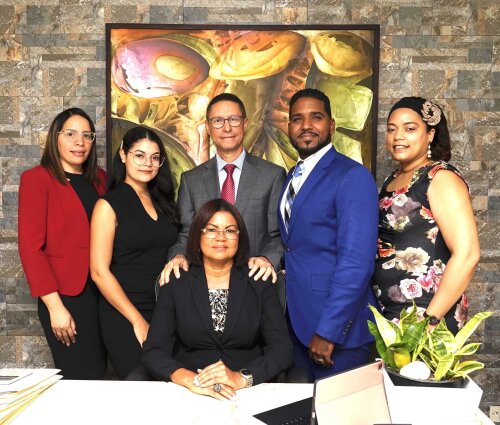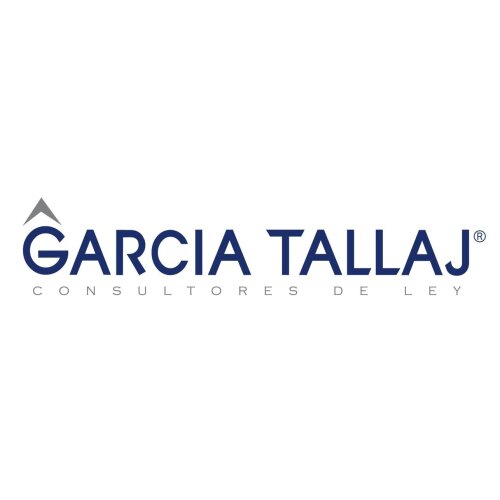Best Family Lawyers in Sosua, Cabarete
Share your needs with us, get contacted by law firms.
Free. Takes 2 min.
Free Guide to Hiring a Family Lawyer
List of the best lawyers in Sosua, Cabarete, Dominican Republic
About Family Law in Sosua, Cabarete, Dominican Republic
Family law in Sosua and Cabarete, which are part of the Puerto Plata province in the Dominican Republic, covers a wide range of issues related to relationships, marriage, divorce, children, and other domestic matters. The Dominican Republic's family law framework is influenced by civil law traditions, with legal codes designed to protect the rights of spouses, children, and other family members. As these North Coast communities are popular with both locals and expatriates, family law matters often involve multi-national complexities, especially regarding marriage, divorce, and child custody.
Why You May Need a Lawyer
Many situations can arise where having a knowledgeable family lawyer in Sosua or Cabarete will make a significant difference. Common reasons people seek family law advice include:
- Getting married and needing clarity about prenuptial agreements or marital property
- Filing for divorce and understanding your rights regarding property division and alimony
- Resolving child custody and visitation disputes, especially in international or bi-national families
- Dealing with child support or spousal maintenance claims
- Adopting children or becoming legal guardians
- Addressing cases of domestic violence or seeking protection orders
- Establishing paternity and associated rights and obligations
- Estate planning, inheritance, and succession matters involving family members
Because Dominican law can be complex and is applied differently compared to other countries, especially in international cases, professional legal assistance is highly recommended.
Local Laws Overview
Family law in Sosua, Cabarete, and the Dominican Republic at large is primarily governed by the country’s Civil Code and related statutes. Here are some key aspects:
- Marriage: Both civil and religious marriages are recognized. Foreign nationals can marry in the Dominican Republic, provided they meet certain documentation requirements.
- Divorce: The country allows several types of divorce, including mutual consent and unilateral divorce for specific reasons. The process and outcomes can vary, particularly for foreigners or those with assets in multiple countries.
- Property Regime: Spouses can select between a separation of property or a community property regime. If not specified, community property is the default arrangement.
- Child Custody: Dominican law prioritizes the best interests of the child. Both parents are expected to play a role, but the specifics can vary based on circumstances.
- Adoption: Adoptions follow a legal process overseen by Dominican courts. International adoptions must comply with local and international standards.
- Domestic Violence: Protective legislation is in place, including orders of protection and legal sanctions for offenders.
- Inheritance: The succession regime requires the distribution of certain portions of an estate to surviving family members, known as forced heirship.
Local laws are always subject to change, and their application can depend on the specific details of each case, especially if foreign nationals or international assets are involved.
Frequently Asked Questions
Can foreigners get married in Sosua or Cabarete?
Yes, foreigners can legally marry in the Dominican Republic. Certain documents, such as birth certificates and proof of marital status, must be provided, usually with certified translations into Spanish.
How is divorce handled if one partner is not Dominican?
Divorces involving non-citizens can be more complex. Dominican courts generally have jurisdiction if the marriage occurred in the country or if one party resides there. You may need official translations and should consult a lawyer familiar with international divorce.
What property laws apply to married couples?
Unless otherwise arranged by prenuptial agreement, a community property regime will apply. This means assets acquired during the marriage are shared equally, subject to legal exceptions.
How does child custody work after a separation or divorce?
The courts base decisions on the best interests of the child. Both parents are usually expected to maintain a relationship with the child, but physical custody is decided on a case-by-case basis.
Is child support mandatory and how is it calculated?
Yes, child support is mandatory. The amount is determined by the court, considering both parents’ income and the needs of the child.
What is required to adopt a child in the Dominican Republic?
Adoptions must go through a legal process, which includes background checks and approval from family courts. If the adopters are foreign nationals, additional requirements can apply.
What protections exist for victims of domestic violence?
Victims can request protection orders and take legal action. Several organizations and authorities in the country provide support and assistance.
How is inheritance distributed among family members?
Dominican law requires a portion of an estate to be reserved for close family members, such as children and spouses, regardless of a will. This is known as forced heirship.
What legal documents should expats prepare before marrying or divorcing?
Foreigners should prepare birth certificates, proof of single status or divorce, valid passports, and, for divorces, marriage certificates. All documents should be translated and legalized.
Can I resolve family disputes without going to court?
Yes, mediation and out-of-court settlements are possible. However, for any agreement to be legally enforceable, it is recommended to have it reviewed, registered, or approved by a court.
Additional Resources
- The Dominican Ministry of Justice (Procuraduría General de la República) - oversees matters such as domestic violence, child protection, and family law courts.
- Oficinas de Defensa Pública (Public Defender’s Offices) - available in major towns for legal aid and guidance.
- Junta Central Electoral - for civil registry services, including marriage, birth, and divorce certificates.
- Local lawyers and notaries specializing in family law in Puerto Plata, Sosua, and Cabarete.
- Non-governmental organizations offering support for domestic violence and child protection, such as Centro de Atención Integral a la Mujer in Puerto Plata.
Next Steps
If you need legal assistance in family matters in Sosua or Cabarete, consider the following steps:
- Gather all relevant documents, such as identification, marriage certificates, birth certificates, and any previous legal agreements.
- Contact a local lawyer who is experienced in Dominican family law. Ensure they have experience with international or expat cases if that applies to you.
- Consult with your lawyer to explain your situation and ask about your rights and options before taking formal action.
- Consider mediation if appropriate, for issues like divorce or child custody, to reach an agreement outside of court.
- If urgent protection or legal action is required, visit the nearest family court or public prosecutor’s office without delay.
Legal processes in the Dominican Republic can differ from those elsewhere, so local legal expertise is crucial. Always confirm the credentials and reputation of any professional you engage.
Lawzana helps you find the best lawyers and law firms in Sosua, Cabarete through a curated and pre-screened list of qualified legal professionals. Our platform offers rankings and detailed profiles of attorneys and law firms, allowing you to compare based on practice areas, including Family, experience, and client feedback.
Each profile includes a description of the firm's areas of practice, client reviews, team members and partners, year of establishment, spoken languages, office locations, contact information, social media presence, and any published articles or resources. Most firms on our platform speak English and are experienced in both local and international legal matters.
Get a quote from top-rated law firms in Sosua, Cabarete, Dominican Republic — quickly, securely, and without unnecessary hassle.
Disclaimer:
The information provided on this page is for general informational purposes only and does not constitute legal advice. While we strive to ensure the accuracy and relevance of the content, legal information may change over time, and interpretations of the law can vary. You should always consult with a qualified legal professional for advice specific to your situation.
We disclaim all liability for actions taken or not taken based on the content of this page. If you believe any information is incorrect or outdated, please contact us, and we will review and update it where appropriate.
Browse family law firms by service in Sosua, Cabarete, Dominican Republic
Sosua, Cabarete, Dominican Republic Attorneys in related practice areas.










